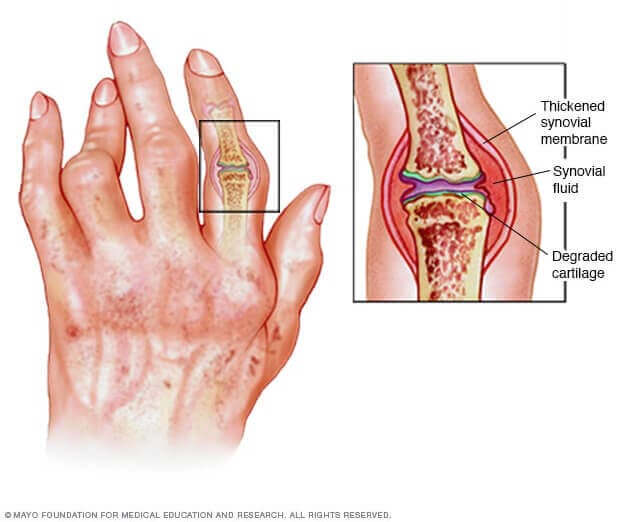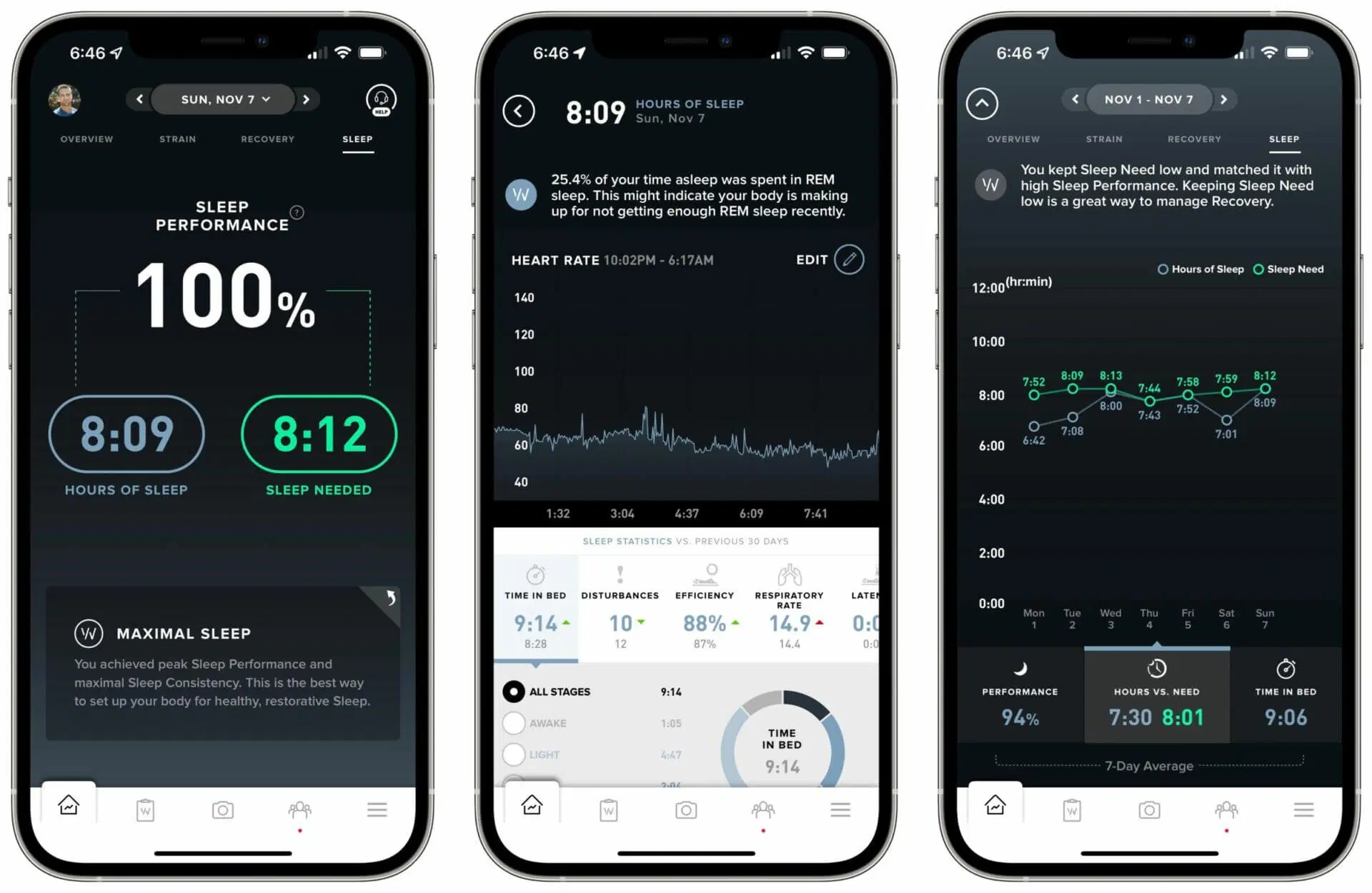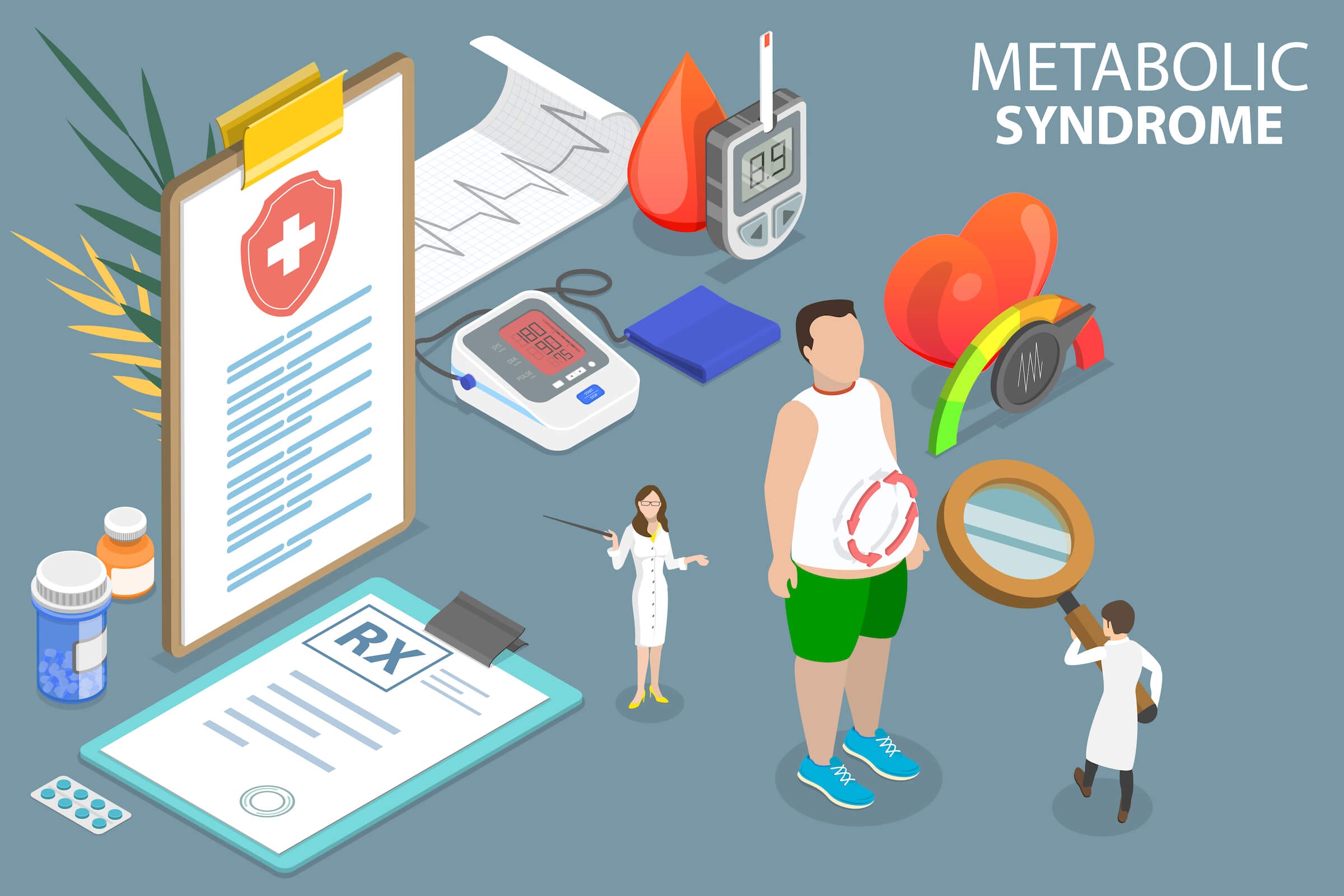This article outlines 12 key factors that determine whether or not you’re healthy, with a specific focus on the concept of metabolic health (which is an indicator of how well or poorly your metabolism is functioning).
Throughout, I’ll tell you about the lifestyle changes I’ve implemented to transform from a professional athlete who was metabolically unhealthy (and frequently injured) into a hobby athlete who barely gets sick and is stronger and fitter than I was 20 years ago.
I’ll also list the indicators you should watch out for, as well as which blood tests you should request during your next physical exam.
What Is Metabolic Health?
First, it’s important to understand the three main functions of metabolism:
- The conversion of the energy in the food you eat into energy that is available to run your body’s cellular processes.
- The conversion of food to building blocks for proteins, lipids, nucleic acids, and some carbohydrates.
- The elimination of metabolic waste.
When you’re metabolically healthy, your body does an excellent job of converting carbohydrates into glucose, fatty acids into ketone bodies, and proteins into amino acids.
Glucose and fatty acids can be used for energy, while amino acids are turned into the building blocks of muscle tissue or the signaling molecules that help cells communicate.
Additionally, a metabolically healthy body is able to efficiently eliminate waste products via the liver and kidneys.
If your metabolism isn’t working optimally, then your body can’t properly extract energy and nutrients from the food you eat. This can lead to weight gain, inflammation, an impaired immune system and a host of other issues.
In the long run, this metabolic dysfunction can significantly increase your risk of developing a disease, and can make you more susceptible to viral infections.
That’s why any determination of “healthy” or “unhealthy” needs to start with an evaluation of your metabolism; because if that’s not working well, other aspects of your health will suffer as a result.
12 Factors That Comprise Your Metabolic Health

Determining your metabolic health involves the assessment of several factors, as listed below.
- How you feel.
- How fit you are.
- Your skin health.
- Your metabolic flexibility.
- Your gut microbiome.
- How well your immune system functions.
- Your blood markers.
- Your dental health.
- Whether you have chronic pain.
- Your stress levels.
- How well you sleep.
- Your menstrual cycle.
Let’s look at each of these factors and discuss how to use them to evaluate your current metabolic health.
1. How You Feel

Being healthy means you should subjectively feel great most of the time.
Of course, the problem is that unless you’re in-tune with your body, you might not know what that feels like — especially if you’ve been metabolically unhealthy for years or even decades.
For most of my life, I thought I felt good. That was until I started making important lifestyle changes. In other words, I was feeling 60% but thought that was 100%; I didn’t know that I wasn’t reaching my peak potential.
On the other hand, when you truly know what it means to feel 100%, then any deviation from that norm can be a clear signal that something is off.
Over the past few years, I’ve become relatively sensitive to factors that impact the way I feel. Examples include stress, certain foods that reduce my mental clarity, and getting as little as 30 minutes less sleep during a given night. When any of those things happen, I immediately feel worse.
Of course, “worse” is still worlds better than I used to feel.
2. How Fit You Are
A study published in the European Journal of Preventive Cardiology found significant correlations between lower levels of physical activity, higher body mass index (BMI), and reduced cardiorespiratory fitness (VO2max).
In other words, the less active you are, the more likely you are to be unhealthy. And if you’re overweight or shows signs of central obesity or visceral fat, there’s a good chance that your fat and glucose metabolism is severely impaired.
At the same time, when thinking about your fitness, it’s important to recognize that cardiovascular stamina and body composition aren’t always reliable indicators of metabolic health.
In my early 20s, I was a professional athlete and worked out as often as 13 times per week. So I was in pretty good shape and I had excellent cardiovascular markers. As a result, I didn’t pay much attention to sleep or nutrition. (In fact, I had an awful diet consisting of fast food, highly processed carbs and sugary soft drinks.)
Needless to say, I wasn’t metabolically healthy. But I didn’t recognize the signs, which included irritable bowel syndrome (IBS), frequently being sick and injured, and the inability to reach my full potential.
In fact, I didn’t know just how far from my full potential I was until many years later, when, in my mid-30s, I started lifting heavier weights and surpassing my cardio performance from 15 years earlier.
The key takeaway is that looking strong and working out doesn’t necessarily indicate good metabolic health, because if you work out enough, you may be able to mask some of the indicators of metabolic dysfunction.
At the same time, if you’re huffing and puffing after walking up a flight of stairs, chances are that your cardiovascular system isn’t working optimally. And that often goes hand-in-hand with a disturbed metabolism.
3. Your Skin Health

Your skin is an excellent reflection of your overall health and diet.
Severe skin issues — such as acne, eczema and chronic rashes — are usually indications of either a dysbiosis in the gut, poor dietary choices or inflammation. In fact, A recent systematic review published in Dermatology Reports found that the gut-skin axis plays a critical role in the pathogenesis of most skin disorders.
I had dry skin for decades, resulting in daily use of lotions and creams to reduce the itching. I no longer have that problem and now barely use creams and lotions. I’m grateful for that because most skincare products are loaded with hormone-disrupting chemicals that do more harm than good.
If you suffer from any of the skin conditions mentioned above, I can virtually guarantee you that you have metabolic issues that can likely be fixed by making the proper lifestyle changes. (I discuss these later in the article, but you can also jump to that section.)
4. Your Metabolic Flexibility
A 2023 study published in the Journal of Clinical Medicine found that certain lifestyle interventions (e.g., dietary changes or exercise) may help improve metabolic flexibility, thus reducing the potential for metabolic diseases and disorders.
Metabolic flexibility is your body’s ability to efficiently switch back and forth between using glucose (from carbs) and ketone bodies (from fat) as fuel.
Babies are born with metabolic flexibility, but most people lose it over time as a direct result of poor dietary choices (and more specifically, as a result of the chronic overconsumption of processed carbohydrates).
A lack of metabolic flexibility can cause low energy levels (and sometimes, dizziness) when you skip a meal or fast for extended periods. This effect is caused by plummeting blood sugar levels and the inability to use body fat for fuel, which is why you may feel strong cravings for carb-laden food and drinks.
When was the last time you fasted for 20 hours and felt great while doing it?
When you’re metabolically healthy, your body automatically starts burning fat for energy without causing hypoglycemia (low blood sugar) any time the need arises. That way, you don’t feel crappy when you have to skip a meal or when you miss a snack between meals.
This factor is relatively easy to evaluate. Skip lunch or dinner and see how your body reacts.
5. Your Gut Microbiome

The gut plays a major role in your overall health, including in how well (or poorly) your immune system functions. If you suffer from a dysbiosis of your gut’s microbiome, chances are that your metabolic health is severely impaired.
For example, a study published in Genome Medicine found growing evidence for a strong contribution of poor gut microbiota health to the onset of obesity and metabolic diseases.
Signs of issues with your gut microbiota may include bloating after meals, frequent diarrhea, irritable bowel syndrome (IBS), Crohn’s disease, ulcers, frequent heartburn and others.
I suffered from IBS for most of my life, as did my father. In fact, he still does. Unfortunately, he hasn’t accepted the connection between his lifestyle and gut issues, despite the fact that I’ve shared everything I know about the topic.
When I first realized that constant bloating and pressure in my abdominal area wasn’t normal and decided to ask a doctor about it, I was told that the condition was likely hereditary and uncurable.
But after learning more about the importance of gut health, I went through a series of steps to eliminate foods from my diet with the goal of identifying the ones that were causing my symptoms. After just a few weeks, I was able to essentially cure my IBS and reintroduce the vast majority of the foods I had eliminated during the testing phase.
The bottom line is that bloating, cramping, constipation, and other gut problems are not normal and are thus a sign of poor health.
6. How Well Your Immune System Functions

I used to be sick with viral and bacterial infections several times a year, and I figured it was entirely normal to be sick that frequently. In reality, frequent illness is a sign of a compromised immune system that often goes back to metabolic dysfunction.
In fact, a study published by the Harvard School of Public Health found that metabolic processes and the immune system are interdependent, because the regulation of energy in our bodies is crucial for a strong immune response.
That’s something I didn’t come to appreciate until I started living a healthier lifestyle. I noticed a dramatic difference in how often I get sick after I changed my dietary habits and became more protective of my sleep, and went three years without getting sick (until I contracted COVID-19). And even then, I had only minor symptoms, such as a mild cough and a loss of smell that lasted two or three days.
Everyone gets sick occasionally, but these instances should be rare.
7. Your Blood Markers
There are several blood markers that I get checked every three months because they provide an excellent indication of metabolic health.
Unfortunately, many of them are not part of the regular blood panel your physician might order during your annual checkup.
While I recommend getting a comprehensive blood panel done every few months (you can see the entire list of blood markers I get in the table below), these are the ones I view as the most critical:
- CRP, which is a protein produced by the liver in response to inflammation. Your CRP usually goes up when you’re sick. I’ve also experienced transient increases in CRP right after intense workouts. Neither of these cases are cause for concern, but if your CRP is elevated without an apparent reason (e.g., an acute infection), it’s likely due to chronic inflammation caused by a dysfunctional metabolism.
- Hemoglobin A1c. Unlike your fasting glucose, which offers only a snapshot of your blood sugar levels at a given point in time, your A1c tracks your average blood sugar levels over the past 90 days. An elevated HgA1c is a sign of blood sugar and insulin sensitivity issues.
- Insulin. Your fasting insulin levels are perhaps even more important than your blood sugar markers, because they give you an indication of how sensitive your cells are to insulin. In the morning (while in a fasted state) your insulin levels should be below 16 ulU/mL, and ideally below 3 ulU/mL.
- Vitamin D. Having low Vitamin D is a major risk factor for several metabolic issues, including cardiovascular disease and cancer. Since Vitamin D is also important for absorbing calcium, low levels can cause bone density issues.
- Blood lipids. The two blood lipid markers I pay close attention to are my high-density lipoprotein (HDL cholesterol) and my triglyceride levels. As a rule of thumb, you want your HDL to be as high as possible and your triglycerides to be as low as possible.
- Thyroid hormones. Considering that the thyroid’s job is to control your metabolism, it shouldn’t come as a surprise that out-of-range thyroid hormone levels are a potential indicator of metabolic dysfunction.
- Testosterone. Very often, the decline in testosterone goes hand-in-hand with a species-inappropriate diet consisting of processed carbs and seed oils, as well as metabolic conditions such as obesity. As a result, if you suffer from low testosterone levels, chances are there’s something wrong with your metabolism.
Here’s my full blood panel list, with notes. (For blood markers where I didn’t add notes, you’re just looking for a result within the “normal” range.)
| Blood Test | Notes |
|---|---|
| Bicarbonate | Bicarbonate should be > 25. Alternatively, you can check the Pyruvate to Lattice Acid ratio (it should be 4:1). |
| C-reactive protein (CRP) | Should be below 1. |
| Complete blood count (CBC) with differential | Infections and altitude training can temporarily elevate CBC biomarkers. |
| Cortisol, morning | Low morning cortisol could be a sign of a disturbed circadian rhythm. |
| DHEA sulfate | The DHEA:Cortisol Ratio is considered a measure of how chronic stress affects the hypothalamic-pituitary-adrenal (HPA) axis. Healthy levels are considered to be around 5:1, but they should (ideally) be closer to 10:1. |
| Dihydrotestosterone (DHT) | |
| Estradiol, estrone and estrone sulfate | |
| Ferritin | Consider supplementing with heart and spleen if you suffer from low iron or ferritin levels. |
| Hemoglobin A1c (HgA1c) | Should be below 5.6. |
| Homocysteine | |
| IGF-1 | |
| Insulin, fasting | Should be below 3. |
| Lipid panel | Pay attention to HDL and triglycerides, and ignore LDL and total cholesterol. |
| Lipopolysaccharides (LPS) | LPS are endotoxins from gram-negative bacteria in the gut. If you have elevated levels you should make changes to your diet and reduce your plant and fiber intake. |
| Luteinizing hormone (LH) | |
| Lipoprotein-associated phospholipase A2 (Lp-PLA2) | It can help predict the risk of coronary heart disease in patients with no prior history of cardiovascular events. |
| Lipoprotein(a) | It’s used to evaluate lipid metabolism disorders and to assess coronary heart disease. |
| Metabolic panel, comprehensive | |
| Progesterone | Also check your progesterone to estradiol (E2) ratio to confirm it’s between 100-500:1. Since progesterone is often measured in nanogram and estradiol is often measured in picogram, make sure you multiply the nanogram by 1,000 to get picogram before calculating the ratio. |
| Prolactin | Should be below 12, unless you’re a lactating woman. |
| PSA | |
| Testosterone (free and total) | Total should be 500 or higher in males. |
| Thyroid hormones (TSH, T3, T4) | Normal thyroid function is crucial for energy production. |
| Urine analysis | |
| Vitamin D | Consider supplementing with D3 during winter. |
| Blood pressure |
SiPhox is a relatively inexpensive and convenient way to get reports on many of these markers. You simply order a kit, collect a few drops of blood using a lancet, and send it back to the company. Within about five business days, you get your results in a detailed online dashboard. You can learn more about the service and how I use it in this video.
8. Your Dental Health
A few years ago, I heard about a study that correlated poor dental health with an increased risk of developing cardiovascular disease.
As you can imagine, the dental industry jumped on those findings, arguing that you should brush your teeth more often to decrease your risk of developing heart disease.
But in reality, keeping your teeth and gums healthy is only partially influenced by how often (or how well) you brush, floss and rinse with mouthwash.
Rather, poor dental health is likely only a symptom of underlying metabolic issues, nutritional deficiencies and systemic inflammation.
For example, a study published in the International Journal of Molecular Sciences found a strong relationship between metabolic syndrome and inflammatory gum disease. Specifically, researchers discovered that inflammatory cytokines resulting from the metabolic syndrome components may increase the oxidative stress in the gingiva, thus Impairing the ability of the periodontium to respond to a bacterial challenge, which may result in an increased risk for periodontal disease.
In other words, improving your metabolism and reducing inflammation will lead to better dental health (not the other way around).
Anecdotally, I can tell you that I had issues with cavities all of my life (despite brushing and flossing after most meals) until I changed my dietary lifestyle. It wasn’t until I fixed my metabolism that I stopped getting cavities. Additionally, the inflammation in my gums has improved dramatically.
9. Whether You Have Chronic Pain

A study from 2023 that was published in Bone Research found that metabolic abnormalities, such as obesity and Type 2 diabetes, are strongly linked to osteoarthritis, and that they affect both weight-bearing and non-weight-bearing joints (thus suggesting that the pathogenesis of osteoarthritis is more complicated than the mechanical stress induced by being overweight).
In more practical terms, chronic pain is a fairly obvious sign that something is wrong. I’m not referring to muscle pain due to an injury or accident, but to pain that doesn’t have an obvious root cause. A great example is recurring headaches, and especially migraines.
While tension headaches can be triggered by stress, they’re often indicators of metabolic issues caused by poor dietary choices. That’s because they can be directly caused by certain chemicals in food, such as the antinutrients found in many plants and the histamines found in aged foods.
Joint pain is also a common response to the accumulation of oxalates (one type of antinutrients) found in foods such as leafy greens like kale and spinach.
Pain is an inflammatory response, and while short-term inflammation is important for healing, chronic inflammation is the leading risk factor of metabolic disease. As a result, if you suffer from chronic pain that’s not caused by an injury or accident, chances are that your metabolism isn’t functioning optimally.
10. Your Stress Levels

As I discussed in my article about the best stress-relief gadgets, stress is a major contributor to weakening your immune system and causing inflammation (source). And recent studies have shown that chronic tissue inflammation can lead to metabolic disease and insulin resistance.
Stress can also create hormonal imbalances because it triggers the release of cortisol and other chemicals that, if chronically high, can negatively impact how your metabolism operates.
One study published in Nature concluded that in adults, stress is associated with a 1.1-fold to 1.4-fold excess risk of obesity, diabetes mellitus and liver disease, and that life stress is also a prognostic factor in patients, accelerating the transition of metabolic diseases towards multimorbidity, frailty and death.
The important message here is that if you suffer from chronic stress due to your lifestyle, you’re at risk of having a weakened immune system and metabolic dysfunction.
11. How Well You Sleep

A review published in the Journal of Sleep Medicine Reviews concluded bluntly that sleeping less than seven hours per night dramatically increases your risk of death.
That’s not surprising, because sleep is the foundation of a healthy lifestyle. You can’t be healthy if you don’t sleep well. Your body needs enough quality sleep to run through certain recovery and maintenance programs; if you cut your sleep short, or if the quality of your sleep isn’t where it should be, you prevent your body and mind from managing the stressors of the day.
I’ve written about the importance of sleep and how I use wearables to track how much time I spend in the restorative phases of sleep in separate articles, and I highly recommend you check them out.
But in a nutshell, if your bed and wake times are inconsistent, if you have trouble falling or staying asleep, if you don’t spend approximately 40% of your sleep in restorative phases (deep and REM sleep), or if you wake up frequently or feel exhausted every morning (despite sleeping more than 7-8 hours), chances are that your body isn’t functioning optimally and that you’re at a higher risk of developing a metabolic disease.
12. Your Menstrual Cycle
If you’re a person who menstruates, your cycle should be relatively consistent. The average menstrual cycle is 28 days, according to the Cleveland Clinic. While cycles vary between people (and even from cycle to cycle), here are a few indicators that something might be wrong:
- Your cycle is significantly shorter or longer than 28 days.
- You frequently skip periods.
- Your menstrual flow significantly changes in volume (e.g., becomes much lighter or heavier).
- You regularly bleed or spot in between periods.
If the cause of those issues is not hormonal contraceptives, and if you’ve ruled out conditions such as uterine polyps or pelvic inflammatory disease (often caused by a bacterial infection), your lifestyle might be the reason why your menstrual cycle is off.
For example, factors such as stress, sudden changes in weight, or changes in exercise routine can temporarily impact your period.
Additionally, nutritional deficiencies and hormonal imbalances are often the reason why people have menstrual issues. (For example, a study from 2018 discovered that those with low Vitamin D levels are five times more likely to have menstrual issues.)
Studies have also shown that people with polycystic ovary syndrome (PCOS) are often insulin resistant, suggesting a link between metabolic health and PCOS. The latter can also lead to menstrual issues.
As a result, menstrual problems can be another indicator of metabolic issues that you should take into consideration when assessing your health.
How to Assess Your Current Metabolic Health
This table offers a quick point of reference to help you determine whether you’re metabolically healthy.
| ✅ Indicates you’re healthy | 🛑 Indicates a potential health issue |
|---|---|
| You feel energetic all day. | You experience significant ups and downs throughout the day. |
| You’re free of pain and discomfort. | You suffer from frequent headaches, joint pain and similar ailments. |
| You can run up the stairs and lift furniture without major issues. | You get winded quickly and don’t have the strength to lift anything heavier than a grocery bag. |
| Your skin is clear. | You suffer from rashes, eczema or acne. |
| You can easily skip a meal without feeling hangry or dizzy. | You need to snack in between meals to prevent your blood sugar from crashing. |
| You feel good in your stomach after meals. | You get easily bloated, constipated or suffer from diarrhea after eating. |
| You barely get sick even when people around you are. | You’re sick all the time. |
| Your triglycerides are well below 100. | Your triglycerides are above 100. |
| Your good cholesterol (HDL) is above 40. | Your good cholesterol (HDL) is below 40. |
| Your fasting insulin is below 3. | Your fasting insulin is above 3. |
| Your CRP is below 3 (ideally below 1). | Your CRP is above 3. |
| You have normal thyroid markers. | Your thyroid markers are out of the normal range. |
| You have high testosterone levels. | You have low or borderline low testosterone levels. |
| You wake up rested every morning. | You wake up feeling tired and have an inconsistent sleep/wake time. |
| You’re good at managing stress. | You’re always on edge and it’s hard for you to relax. |
| You barely get any new cavities. | You get a new filling every time you visit the dentist. |
| You have a regular menstrual cycle. | You have an irregular menstrual cycle. |
Tips to Get Healthy and Stay Healthy

If you’ve come to the conclusion that you might not be as metabolically healthy as you thought, don’t freak out. That will only lead to a stress reaction that’s just adding fuel to the fire.
Plus, getting metabolically healthy isn’t as complicated as you might think. In fact, the steps are fairly simple, though they do take some determination and planning to execute.
- Avoid seed/vegetable oils and processed carbs. Immediately remove all seed and vegetable oils, as well as processed foods, from your diet. Both of these cause inflammation and metabolic dysfunction.
- Center your diet around responsibly-farmed meat. Believe it or not, most plants have chemical defense mechanisms that can contribute to metabolic dysfunction and related health issues. So it’s a good idea to increase your intake of responsibly-raised meat while limiting your consumption of the most toxic plants. Organ meat is the best source of vitamins and minerals for humans, but if you don’t like how it tastes, consider freeze-dried organ meat supplements.
- Walk and lift heavy objects every day. Move every day, either by going for long walks or going to the gym. Lift heavy objects several times a week if you can. These movement patterns reflect how humans have moved and “exercised” for millions of years, and they help you retain lean muscle tissue and strong bones (as well as cardiovascular health).
- Expose yourself to the sun every day. Expose your naked skin to the sun every day without wearing sunscreen. Sun exposure is incredibly important for your body to produce certain hormones (including Vitamin D) and to maintain a proper circadian rhythm.
- Regularly use a sauna or cold plunge. Expose yourself to heat and cold every day. These natural stressors boost your immune system and help your body become more resilient. (I’ve written about the benefits of saunas and the benefits of cold plunging, as well as how and why I combine these two techniques.)
- Maintain a consistent sleep and wake time. Try to go to bed and wake up at roughly the same time every day. That’s the best way to support your circadian rhythm and improve the quality of your sleep.
- Practice mindfulness. If you feel stressed, try to remove stuff from your plate and add stress-mitigating techniques, such as breathing, regular exercise or meditation. Chronic stress causes an imbalance in certain hormones (e.g., cortisol) and inflammation. It also negatively impacts your immune system.
- Avoid plastic food storage containers and filter your drinking water. Remove as many toxins from your immediate environment as possible, as outlined in this article. Many common household toxins found in plastic and tap water can disrupt your endocrine system and fat metabolism.
- Wear a continuous glucose monitor. I recommend wearing a continuous glucose monitor for a couple of weeks to get an idea of how your current diet impacts your blood sugar levels. While the goal isn’t to avoid blood sugar spikes at any cost, I think it’s prudent to avoid foods that cause your blood sugar to remain elevated for hours.
- Regularly check your blood work. Check your blood work every couple of months to see if you’re making progress. Certain blood markers (like the ones I noted earlier in this article) are a great indicator of your overall health and well-being.
- Don’t get overwhelmed. Understand that living healthy is a journey that doesn’t happen overnight for most people. There is no quick fix or shortcut. Instead, making the right choices that are conducive to your health is a lifestyle that you will have to carry on for the rest of your life. So find improvements that work for you and that you can carry forward. It’s taken me several years to get where I am and I’m still making regular adjustments as I move forward.
Read my healthy living guide to learn more about these and other important lifestyle factors that will directly impact how you feel.
Final Thoughts on What It Actually Means to be Healthy

Being healthy means different things to different people. But my hope with this article is to give you the right tools to better judge your metabolic health so that you can make lifestyle changes that dramatically increase your chances of living a truly healthy life free of illness.
Ultimately, your well-being is the result of healthy habits (that are consistent with human evolution), including healthy eating, stress management, appropriate sleep patterns, spending time with your loved ones and avoiding environmental toxins.
If you take care of these areas of your life, you’ll likely extend your life expectancy, improve your quality of life and avoid many of the chronic health conditions that so many Americans suffer from.
Now I’d like to hear from you! What are your health goals and what are you doing to make them stick in the long run?

Michael Kummer is a healthy living enthusiast and CrossFit athlete whose goal is to help people achieve optimal health by bridging the gap between ancestral living and the demands of modern society.
Medical Disclaimer
The information shared on this blog is for educational purposes only, is not a substitute for the advice of medical doctors or registered dieticians (which we are not) and should not be used to prevent, diagnose, or treat any condition. Consult with a physician before starting a fitness regimen, adding supplements to your diet, or making other changes that may affect your medications, treatment plan or overall health. MichaelKummer.com and its owner MK Media Group, LLC are not liable for how you use and implement the information shared here, which is based on the opinions of the authors formed after engaging in personal use and research. We recommend products, services, or programs and are sometimes compensated for doing so as affiliates. Please read our Terms and Conditions for further information, including our privacy policy.

You mentioned that keto diet for two years caused you having thyroid problems.
I understand that you became hypothyroid.
My questions are:
Did you have a baseline thyroid function test before the said diet?
Did you run a full thyroid panel test after your 2 years of keto diet?
What symptoms did you have that prompted you to run the thyroid test? Did you feel that something was really off which you attributed to the diet?
Hi Marlena,
to be fair, my statement in the blog is observational evidence and I can’t say for sure that keto caused lower thyroid function. But I get comprehensive blood panels every 3-6 months to understand how my lifestyle impacts certain blood markers and I noticed an increase in thyroid function after switching from keto to an animal-based diet.
Cheers,
Michael
This was one of the best summaries of how to measure one’s health I have ever read. One question for you, Michael. Will a scoop of this multi-collagen powder break my fast in the morning? (The article mentions that some amino acids can do this.)
Thanks!
Chris
Rochester, MN
Oops, I forgot to include the link. Here it is:
https://www.amazon.com/Ancient-Nutrition-Collagen-Strawberry-Lemonade/dp/B07D41TLHX/?th=1
Hey Chris,
yes, consuming collagen will break your fast!
Cheers,
Michael
Wow, that’s a lot of information to take in! I’m a 58 year old post menopausal woman who is quite overweight! I’m exhausted most of the time and have pain in all my joints. I am going to follow, read more and learn more. Thank you.
All the best Sue and let me know if you have any questions or concerns!